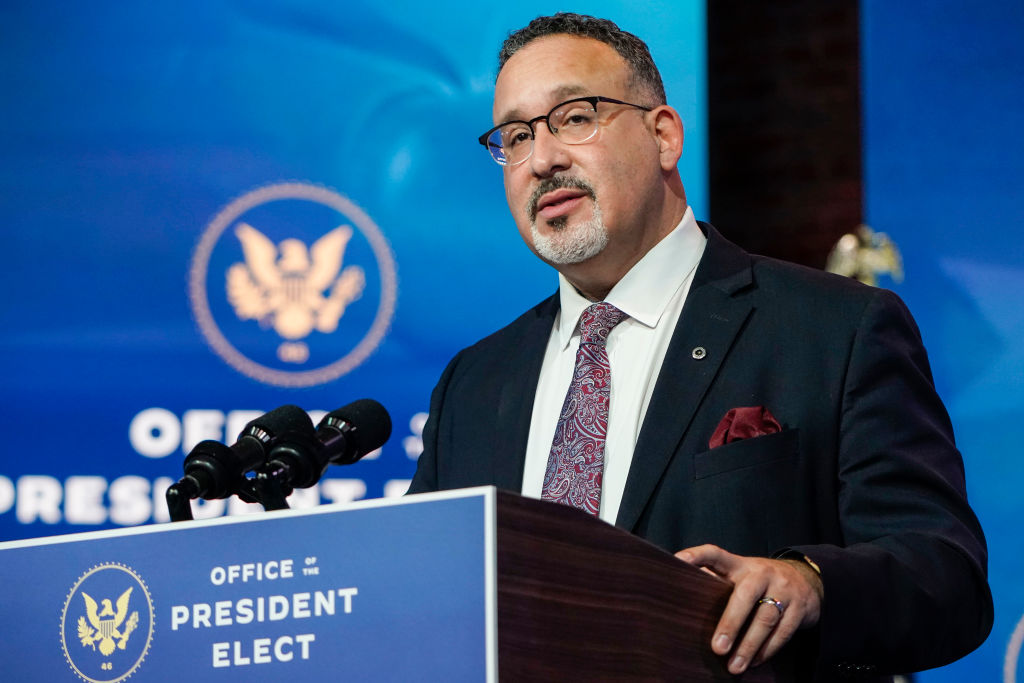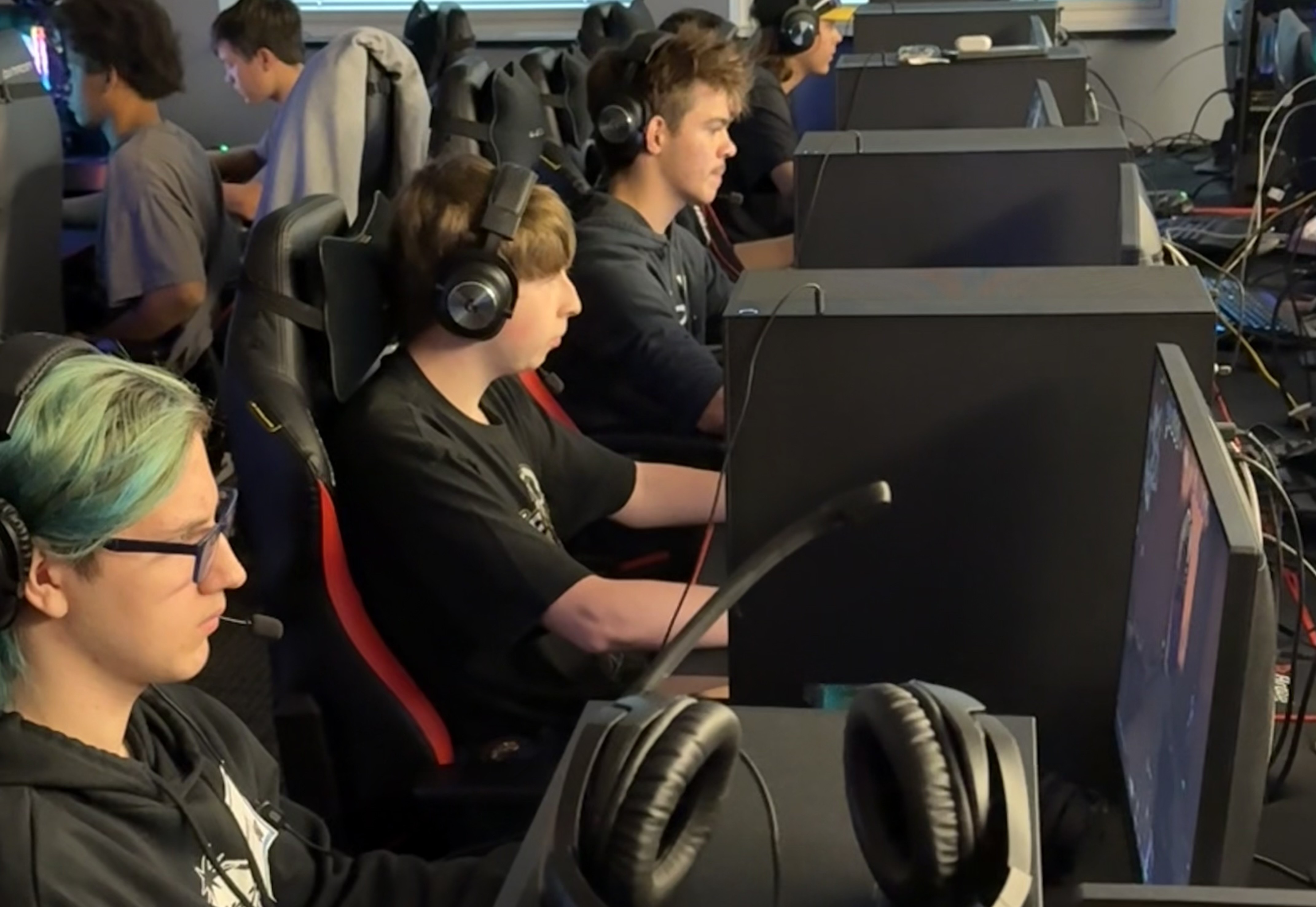5 Things To Know for Miguel Cardona’s Confirmation Hearing
D.C. and education insiders expect Miguel Cardona to be quickly confirmed as the next U.S. education secretary for a number of reasons.

The Senate education committee will hold a confirmation hearing on President Joe Biden’s nomination for education secretary, Miguel Cardona, on Wednesday, February 3, at 10 a.m. ET. You can watch the video live here.
Cardona is expected to be confirmed without much drama. Here’s why:
1. He’s liked by both sides
Susan Gentz, a partner at K20Connect, an education consulting group, says that Cardona’s nomination wasn’t met with either enthusiastic applause from liberal-leaning education reformers or jeers in conservative circles. “It didn't seem like anyone was super, super excited, but nobody was super upset either, and I think that that's how the vote will go,” says Gentz, also a former staffer in the U.S. Senate and a legislative aide in the Iowa House of Representatives.
So far, Cardona’s nomination has garnered bipartisan support with praise from teacher unions and the National Alliance for Public Charter Schools.
2. He’s not Betsy DeVos
The previous education secretary, Betsy DeVos, was one of the most polarizing figures in the history of this cabinet position. She had a contentious confirmation hearing in which she famously speculated that a school in Wyoming might need staff with guns “to protect from potential grizzlies.” Ultimately, she was confirmed by a 51-50 margin after Vice President Mike Pence broke the tie with a vote in favor of her nomination.
The tone surrounding Cardona’s nomination is already different. “The fight was on the instant DeVos’ name came up. It certainly hasn't been that way with this announcement,” Gentz says. “It seems like everyone's just kind of like, ‘Okay, this is his pick, and we'll roll with it.’”
3. The leader of the Senate’s Education Committee has already voiced support
Senator Patty Murray, a Washington Democrat and Chair of the Education Committee, released a statement endorsing Cardona’s nomination on January 13 after a phone call with him. “It’s clear that he is an excellent choice for Secretary of Education who will bring the right experience and priorities to the role,” Murray said. “As a 4th grade teacher, principal, superintendent, professor, and Education Commissioner of Connecticut, he has always been focused on ensuring every student—no matter their zip code, the language they speak, their race, gender identity, sexual orientation, or disability—can reach their full potential. Given his impressive qualifications and the critical role of the Secretary of Education in addressing the crisis facing our education system, I will act quickly to ensure Dr. Cardona receives a swift, fair confirmation.”
Tools and ideas to transform education. Sign up below.
4. He’s flown under the radar
One reason that Cardona has been able to avoid significant criticism so far is that his opinion on hot-button topics such as charter schools is largely unknown. In an op-ed for Forbes, Frederick Hess, director of education policy studies at the conservative American Enterprise Institute, wrote that instead of picking potentially more controversial candidates for the position, Biden selected “a K-12 candidate whose lack of a paper trail allowed the president-elect to avoid taking sides. If Cardona were a Supreme Court nominee, he’s what would be termed a ‘stealth” nominee.’” Hess added, “Cardona seems like a good guy and a committed educator. Quite appropriately, he’s been met with a genial, respectful reception.”
5. He’s a lifelong educator
No one disputes Cardona’s strong resume as a public educator. He was a fourth-grade teacher before becoming a principal in 2003 while he was still in his twenties. In late 2019, Connecticut’s Gov. Ned Lamont nominated him as state education commissioner; his time in that position was dominated by the pandemic, and he emerged as a champion of digital equity and proponent of in-person school. In December, Cardona and other Connecticut officials announced the state was the first in the nation to close the digital divide because they had successfully provided a laptop and high-speed internet access to every public school student who needed either.
Over the summer, Cardona and Connecticut’s governor began a sustained push for schools to return to in-person learning when classes resumed. Throughout the fall, the state’s two largest unions staged repeated protests to the state’s in-person class policies, but ultimately, all Connecticut school districts except one resumed some form of in-person learning.
Both closing the digital divide and getting students back in physical classrooms are anticipated to be priorities of Cardona’s if he is confirmed as expected.
Further Reading
Erik Ofgang is a Tech & Learning contributor. A journalist, author and educator, his work has appeared in The New York Times, the Washington Post, the Smithsonian, The Atlantic, and Associated Press. He currently teaches at Western Connecticut State University’s MFA program. While a staff writer at Connecticut Magazine he won a Society of Professional Journalism Award for his education reporting. He is interested in how humans learn and how technology can make that more effective.

